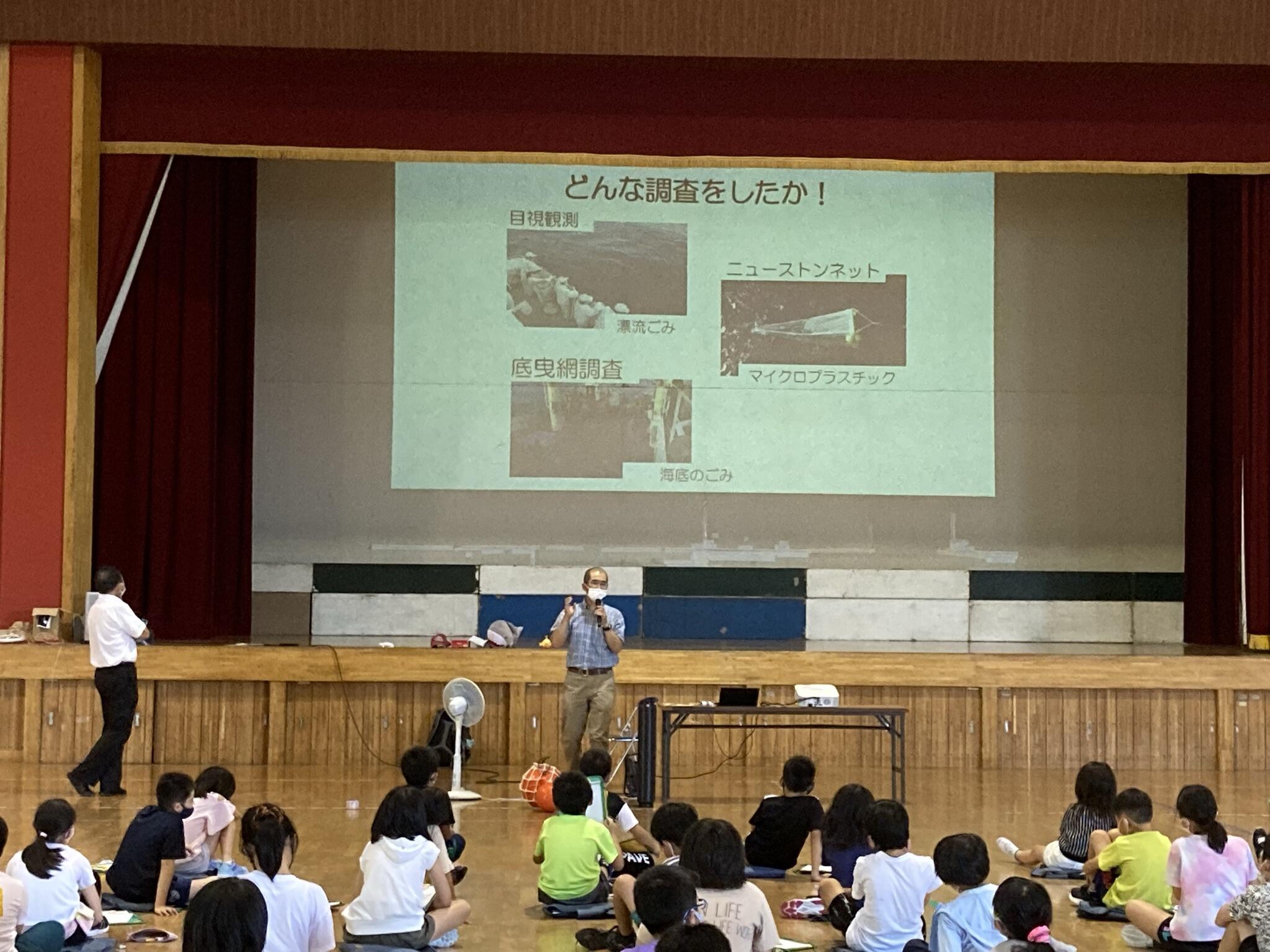[On-site class] A class on "marine plastic waste" was held for 4th graders at Matsuiwa Elementary School in Kesennuma City.
2021/7/14
On July 2021, 7 (Tuesday), at Kesennuma Municipal Matsuiwa Elementary School (Principal: Hidenori Komatsu), 13 4th graders were invited to participate in the lectures given by Associate Professor Keiichi Uchida (Tokyo University of Marine Science and Technology, Graduate School of Marine Science and Technology, Faculty of Marine Resources and Environment). ) gave a class on the issue of fisheries and marine plastic litter.
First, Prof. Uchida introduced research showing that about half of the total weight of plastic waste in the Pacific Ocean Garbage Belt is derived from fishing gear.And is fishing gear really about half of all marine litter?While introducing the results of surveys actually being conducted around Japan, he explained the problems when fishing gear becomes marine litter, using actual fishing gear.
In the explanation of the fishing gear, I introduced how the fishermen carefully catch the fish, and what kinds of fishing methods are available based on the shapes and habitats that capture the characteristics of the fish.In a demonstration using gillnets (a fishing method in which a belt-shaped net is set in the path of the fish) set up in the gymnasium, the process of catching fish is explained using stuffed fish, and stuffed animals of different sizes are used. I learned one of the methods of resource management, such as changing the size of the mesh to change the size of the fish that can be caught.
Furthermore, if unused fishing gear is accidentally washed out into the sea, there is a risk that ghost fishing will occur, where fishing gear will continue to catch fish while wandering in the sea. I appealed that it is necessary to be careful.
Next, the results of a visual observation survey of drifting litter conducted by Tokyo University of Marine Science and Technology's marine research vessel "Umitaka Maru", a survey of seafloor litter using a seine net, and a survey of microplastics floating on the surface using a Newston net were introduced. I was.From these surveys, it was confirmed that a large amount of plastic shopping bags are drifting about XNUMX kilometers away from the Japanese archipelago, and many microplastics have been confirmed even in Antarctica, where people do not live.In particular, it was explained that there is no ocean without microplastics.
The students expressed their impressions, saying, "I want to talk about today's class with my family, try to recycle, and try not to generate garbage in my daily life." .
Finally, Dr. Uchida talked about XNUMXR (XNUMXR), reducing the use of reduce plastics, reusing plastics repeatedly, and recycling plastics in order to reduce marine litter. He explained that it is important to collect and properly dispose of it on a macro scale. Finally, the discussion ended.
Thank you to everyone at Matsuiwa Elementary School.

Associate Professor Uchida explaining about marine debris

